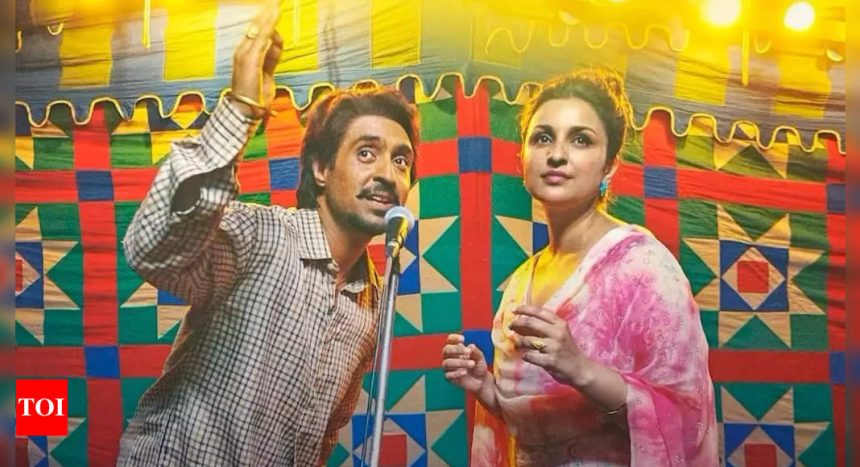Imtiaz Ali’s latest directorial, ‘Amar Singh Chamkila’ based on the life of the slain Punjabi singer, featuring Diljit Dosanjh and Parineeti Chopra in the lead roles, is receiving rave reviews from the audience. The filmmaker has now oped up about shooting a particular scene where old women discuss Chamkila’s controversial lyrics and how Diljit Dosanjh was scandalized by the ‘vulgar’ improvisation.
The filmmaker revealed that the ‘unexpected’ improvisation of the scene on the sets resulted in Diljit saying, ‘Baap re baap’. In an interview with CNN-News 18, Imtiaz Ali revealed that the particular scene was originally designed in a way where Amarjot and Chamkila were supposed to exit a house and pass by these ladies. However, it so happened that the conversations of the old women became so interesting that he decided to go with the flow.
“After a while, I stopped speaking, and they just took off, and a lot of what you see in the film before the ‘Naram Kalja’ song has come from this improvisation of these old ladies,” he said.
The filmmaker revealed that the ‘unexpected’ improvisation of the scene on the sets resulted in Diljit saying, ‘Baap re baap’. In an interview with CNN-News 18, Imtiaz Ali revealed that the particular scene was originally designed in a way where Amarjot and Chamkila were supposed to exit a house and pass by these ladies. However, it so happened that the conversations of the old women became so interesting that he decided to go with the flow.
“After a while, I stopped speaking, and they just took off, and a lot of what you see in the film before the ‘Naram Kalja’ song has come from this improvisation of these old ladies,” he said.
Amar Singh Chamkila | Song – Bol Mohabbat
Imtiaz Ali also recalled how Diljit’s face turned red upon hearing the conversation. “When that shot finally cut, and by that time all kinds of things had been said by these old women, Diljit’s face was red. He turned and said, ‘Baap re baap, inn logon ne kaise baatein boldi.’ They sing very, very vulgar songs during festivities. You must have heard these traditional songs being sung in many, many cultures of our country, in small villages during marriages. They’re very vulgar songs. So, I feel, in some way, what had happened also is that to objectify men happens in these songs,” he added.












